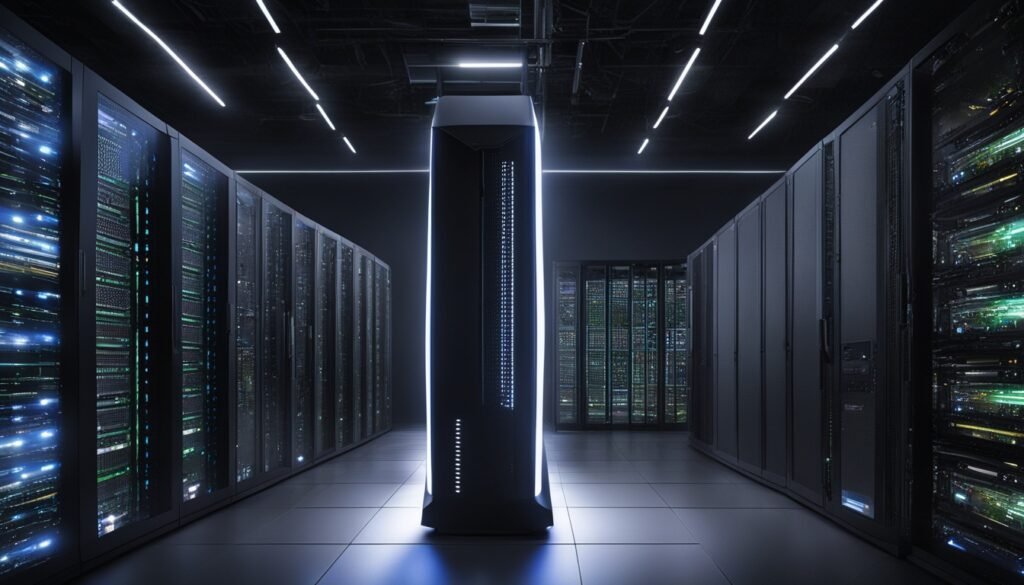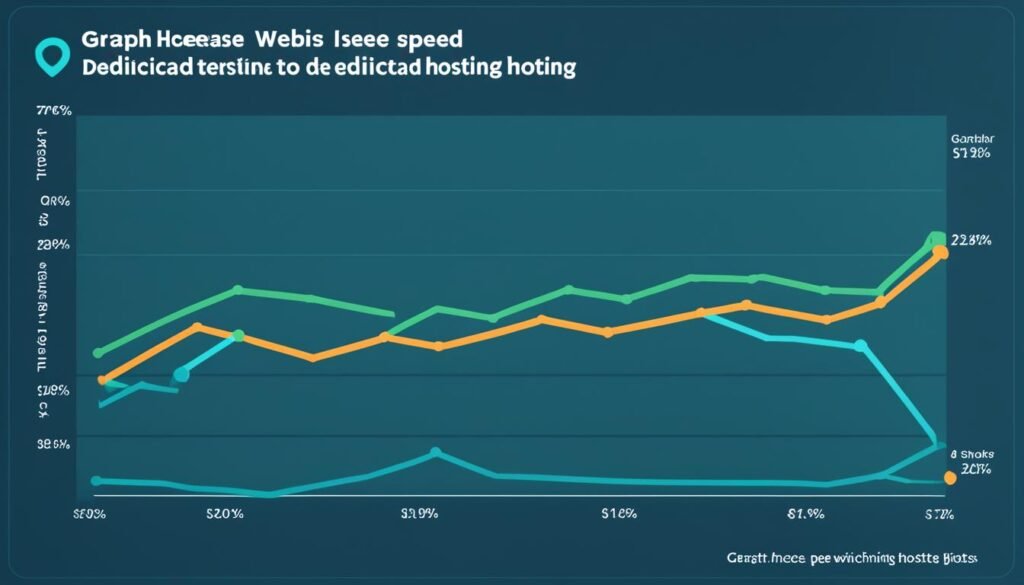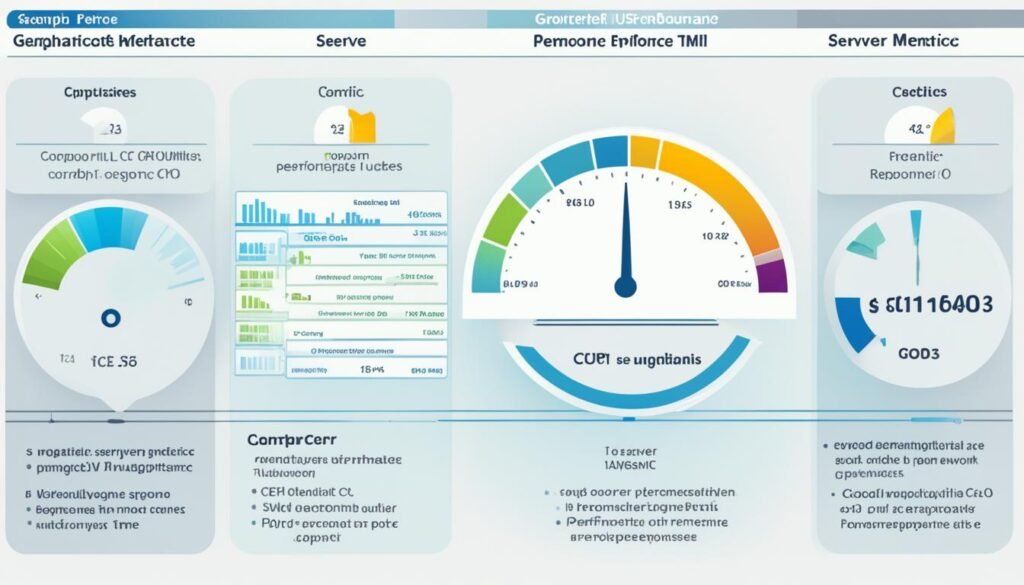Performance Of Your Website: In today’s digital world, your website’s performance is key. It can make your users happy, boost your search engine rankings, and help your business grow. Choosing dedicated hosting is a smart move to boost your site’s performance. It gives your site its own server, ensuring great performance, security, and control.
This article will cover the main benefits of dedicated servers. We’ll look at who should think about them and help you pick the right one for your site. By the end, you’ll know how a dedicated server can change your website’s performance, reliability, and security for the better.
Key Takeaways
- Dedicated hosting gives your website its own resources, leading to better performance, security, and control.
- A dedicated server can make your website faster, more reliable, and able to handle more traffic, giving users a great experience.
- Dedicated hosting also means better security and more ways to customize your server to fit your needs.
- Looking at server performance metrics like IOPS and network throughput can help you choose the right dedicated server.
- Working with a trusted hosting provider means your website gets a high-performance dedicated server, expert support, and ongoing improvements.
What is a Dedicated Server?
A dedicated server is a top choice for websites needing high performance and security. It’s different from shared hosting, where many websites share the same server. With a dedicated server, your website gets its own server. You control the CPU, RAM, storage, and bandwidth, ensuring your site runs smoothly and can be customized as needed.
Compared to shared hosting and VPS, a dedicated server has big advantages. Shared hosting splits resources among many sites, which can slow things down. VPS hosting offers a middle ground but still shares resources. A dedicated server gives you the best performance, security, and flexibility. It’s perfect for businesses with big online needs, complex apps, or critical websites.
Dedicated Server Definition and Comparison with Other Hosting Options
A dedicated server is a physical server you lease or own by yourself. You get to use all its resources, like CPU, RAM, storage, and bandwidth, just for your site or app. Shared hosting splits these resources among many sites. VPS hosting gives you a slice of a server, but it’s still shared with others.
| Hosting Option | Server Resources | Performance | Security | Customization |
|---|---|---|---|---|
| Shared Hosting | Shared | Limited | Basic | Limited |
| VPS Hosting | Virtualized | Moderate | Improved | Moderate |
| Dedicated Server | Dedicated | Highest | Highest | Highest |
Choosing the right hosting depends on your website or app’s needs, like traffic, resource use, and security. If you need high performance, strict security, or lots of customization, a dedicated server is usually the best choice.
Key Benefits of a Dedicated Server

A dedicated server brings many advantages for your website’s performance, security, and growth. Let’s look at the main benefits of this hosting option.
Enhanced Performance and Resource Allocation
A dedicated server boosts your website’s speed and handles more traffic. It gives your site faster load times and better performance. This means happier visitors and more chances to make sales free website speed test core web vitals website grader improve website performance website performance monitoring page performance website monitoring tool overall performance monitor your website analyze your website recommendations on how to improve make sure your website speed of your website performance of your site important web performance affects web developers search engines like google provide web impact performance website takes improving a website’s performance web content test website better your website web browsers performance of the page performance and uptime.
Superior Security and Control
Dedicated servers are much safer than shared hosting. They don’t share resources with other sites, lowering the chance of security issues. You also get full control over the server, making it easier to meet your security needs.
Reliable Uptime and Scalability
Dedicated servers ensure your site is always up and running. This is key for businesses that need constant access. They also grow with your site, handling more traffic and needs as you expand.
“A dedicated server is a game-changer for businesses that demand the best in website performance, security, and reliability.”
Using a dedicated server lets you make the most of your website. It gives you an edge over competitors by offering a top-notch user experience.
Who Should Consider a Dedicated Server?

Dedicated servers are great for businesses and websites needing special performance, security, and customization. They are perfect for certain groups:
- High-traffic websites: Sites that get a lot of visitors can really benefit from dedicated servers. They make sure your site works well, even when it’s very busy.
- E-commerce sites: Online stores need to run smoothly and keep customer data safe. Dedicated servers give them the power and security they need.
- Businesses with custom applications: Companies using special software or apps find dedicated servers useful. They can adjust the server to fit their needs perfectly.
Dedicated servers are ideal for high-traffic websites, e-commerce sites, and businesses with custom applications. They offer the best performance, security, and customization. This makes them great for boosting your online presence.
“Dedicated servers are a game-changer for businesses that need to take their online presence to the next level.”
Factors to Consider When Choosing a Dedicated Server

Choosing the right dedicated server is key for your website’s performance and stability. There are several important factors to think about when picking one.
Hardware Specifications and Bandwidth
The server’s hardware, like the CPU, RAM, and storage, affects its ability to handle your site’s traffic. Make sure it can grow with your website’s needs. Also, check the bandwidth and data transfer options to meet your site’s needs.
Managed vs. Unmanaged Options
Decide if you want a managed or unmanaged dedicated server. Managed servers come with technical support and maintenance, great for those not skilled in IT. Unmanaged servers give more control to those who like to manage their servers.
Security Features and Customer Support
Security is vital when choosing a dedicated server. Look for DDoS protection, firewalls, and regular backups to protect your site. Good customer support is also key to quickly fix issues, keeping your site running smoothly.
| Factors | Considerations |
|---|---|
| Hardware Specifications | CPU, RAM, Storage |
| Bandwidth | Data transfer, traffic needs |
| Managed vs. Unmanaged | Technical support, control |
| Security Features | DDoS protection, firewalls, backups |
| Customer Support | Responsiveness, issue resolution |
Think about these factors carefully to pick a dedicated server that fits your website’s needs. This ensures your site performs well, is secure, and reliable.
Performance Of Your Website

Your website’s performance is closely tied to your server’s performance. A server must deliver fast load times, handle lots of traffic, and stay up all the time. This is key for a smooth user experience. Things like CPU, RAM, storage, and network connectivity greatly affect your website performance and website speed.
Improving these server parts can make your website reliability and user happiness better. By choosing a dedicated hosting solution, companies get server performance that meets their needs. This ensures their site always gives a great experience to visitors.
Unlocking the Power of Dedicated Hosting
Dedicated hosting gives businesses the exclusive use of server resources they need to succeed online. With a dedicated server, you can adjust the hardware, storage, and network bandwidth to fit your website’s needs. This optimizes website performance and website speed at all levels.
“A dedicated server is the key to unlocking the full potential of your online presence. By customizing the server resources to your unique needs, you can ensure your website delivers lightning-fast load times and unparalleled reliability.”
If you’re expecting more visitors, hosting big files, or need better security, a dedicated hosting solution can help your website succeed.
Evaluating Server Performance: Advanced Metrics

To make your website run smoothly, look beyond CPU and RAM. Advanced metrics like IOPS, network throughput, and memory performance are key. They give you a full picture of your server’s strength. By watching these, you can spot and fix any slowdowns.
I/O Operations Per Second (IOPS)
IOPS measures how well a server handles input/output tasks. It’s crucial for sites that deal with lots of data. A high IOPS means your server can handle your site’s demands well, giving users a smooth experience.
Network Throughput and Memory Performance
Network speed and memory use are also important for server performance. They affect how fast your server sends data to users. Checking memory use can show where your server might slow down.
Keeping an eye on these advanced server metrics helps you make smart choices. You can make your dedicated server faster, more reliable, and ready to grow.
How a Server Impacts Website Performance
Your server’s power and features greatly affect your website’s performance. It impacts load times, uptime, and how easy it is to scale resources. The server’s specs and setup play a big role in these areas.
Speed, Uptime, and Scalability
A top-notch dedicated server makes your site fast, always available, and ready for more visitors. It has enough power, memory, and storage to handle lots of traffic. This means your site works well, even when many people are visiting at the same time.
Security and Customization
Security and customization are also key. Dedicated servers have strong security like firewalls and regular updates. This keeps your site safe from threats. You can also adjust the server to make your site run better and faster.
Choosing the right dedicated server helps improve your website’s speed, reliability, and security. This leads to a better user experience. It can increase engagement, drive more sales, and help your business grow.
Maximizing Website Performance with a Dedicated Server
To make your website run smoothly, you need a good plan for your dedicated server. This means picking the right hardware, using your server’s resources well, and keeping it in top shape. Doing these things will boost your website and give users a great experience.
Getting the most out of your dedicated server means focusing on website performance optimization. Choose strong processors, lots of memory, and good storage to handle your site’s traffic and content. Also, make sure to spread out CPU, RAM, and bandwidth as your website grows.
Keeping your server in good condition is key. This includes updating software, fixing security issues, and checking how well it’s running. By doing regular maintenance, your website will stay fast, reliable, and safe for everyone who visits.
| Optimization Aspect | Key Considerations |
|---|---|
| Hardware Specifications | Processors, Memory, Storage, Network Bandwidth |
| Resource Allocation | CPU, RAM, Disk I/O, Network Throughput |
| Server Maintenance | Software Updates, Security Patches, Performance Monitoring |
By focusing on website performance optimization, dedicated server configuration, server resource allocation, and server maintenance, you can make the most of your dedicated server. This will give your users a super-fast, secure, and growing website experience.
Also Read: Exploring The Cost Effectiveness Of Cloud Hosting For Startups
“Optimizing your dedicated server is the key to unleashing your website’s true potential and providing an exceptional user experience.”
Conclusion
Dedicated hosting can change the game for businesses and individuals looking to boost their website’s performance. It gives you full access to server resources. This means better performance, top-notch security, steady uptime, and great scalability. All these are key for a great user experience.
When picking a dedicated server, look at the hardware, security, and support options. This ensures you get the best fit for your needs. By setting up and keeping your server right, you can make your website run smoothly. This puts you ahead in today’s fast-paced online world.
Choosing a dedicated server is a smart step for those who value website performance, security, and growth. With dedicated hosting, you can improve your online presence. This leads to more engagement and sets your brand up for success online.
FAQs
A: Dedicated hosting is a type of web hosting where a server is leased to a single organization or individual, allowing them full control and resources of the server for their website.
Q: How does dedicated hosting benefit website performance?
A: Dedicated hosting can improve website speed and performance by providing dedicated resources, eliminating the impact of other websites on server performance.
Q: Why is website speed important for user experience?
A: Website speed is crucial for user experience as it impacts how fast a webpage loads, directly affecting bounce rates, conversion rates, and overall customer satisfaction.
Q: What tools can I use to test my website speed?
A: You can use tools like Pingdom, GTmetrix, and Google PageSpeed Insights to analyze your website’s performance, identify speed issues, and receive recommendations for improvement.
Q: How can I optimize my website for better performance?
A: You can optimize your website by reducing page load times, minimizing the number of HTTP requests, optimizing images, leveraging browser caching, and implementing best practices in web design.
Q: What are some performance metrics I should monitor for my website?
A: Some key performance metrics to monitor include page load time, time to first byte, number of HTTP requests, site speed, and overall website performance in different browsers and devices.
Q: How can website owners improve their website’s performance?
A: Website owners can improve performance by regularly monitoring website speed, optimizing for mobile devices, utilizing a fast web server, evaluating performance issues, and staying updated on web performance optimization techniques.




